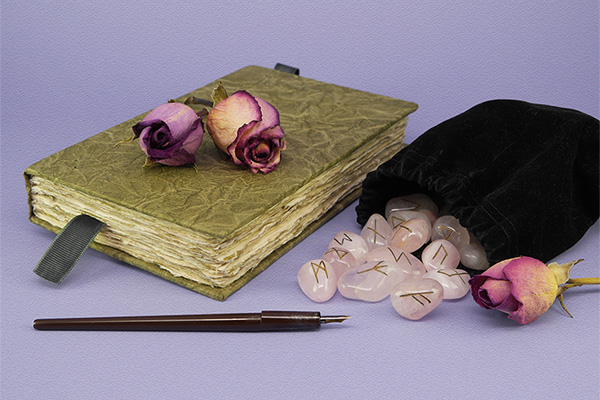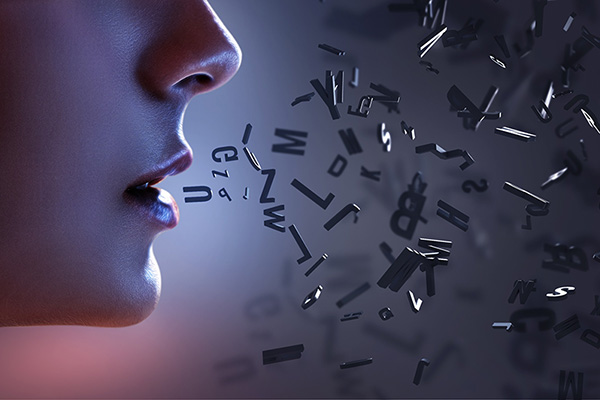emotions
It Is Never ‘Just A Dream’
 People often say, “It was just a dream, it does not mean anything.” But in my experience our dreams always mean something, and sometimes it is profound.
People often say, “It was just a dream, it does not mean anything.” But in my experience our dreams always mean something, and sometimes it is profound.
Dreams serve important mental, emotional, and spiritual functions in our life journey. Our dreams help us to process and learn from our daily experiences, store memories and important information, master new skills, and manage our emotions. Dreams are also key to our inner guidance, spiritual expansion, karmic evolution, and soul growth. And some dreams are the key to healing trauma.
The first nine years of my life my family lived in a small town, until we moved to a much bigger and more bustling city. Soon after we settled in our new location, I began having the same dream repeatedly.
The content of the dream never wavered. I was back in our hometown, and I was standing frighteningly close to the edge of a large, deep lake. Then suddenly I was running away from a threatening bear chasing me. The intensity of this nightmare never changed, and I consistently woke up terrified.
Around the time I turned 14, it suddenly stopped, and I never experienced the dream again.
Years later, I researched the dream’s possible meaning. I then learned that water often represents emotion, while frequently dreaming about being chased is a sign of feeling stressed, anxious, worried, or fearful. In my dream, I was running away from the negative emotion, or trying to avoid it.
The Fire Season Of Love And Joy
 In Traditional Chinese Medicine (TCM), there are Five Elements, namely Wood, Fire, Earth, Metal, and Water. These elements are each associated with the seasons, certain emotional states, and specific organs in the physical body. I am personally fascinated with how accurate these correlations can be.
In Traditional Chinese Medicine (TCM), there are Five Elements, namely Wood, Fire, Earth, Metal, and Water. These elements are each associated with the seasons, certain emotional states, and specific organs in the physical body. I am personally fascinated with how accurate these correlations can be.
In the summer season, for example, the element of fire rules. The four organs associated with the fire element is the heart, small intestines, pericardium (or heart protector) and San Jiao, or the ‘triple energizer,’ which is the hollow space inside the trunk of the body.
In TCM, the solid organs each has its counterpart in a ‘hollow organ (Fu).’ The heart, for example, is a solid organ, and the small intestine its hollow counterpart. San Jiao is a body cavity that is able to influence the functioning of other organs and our overall health through the free movement of Qi, the fundamental life force energy.
The fire element represents expansion of energy expanding with heightened activity and excitement. It is further associated with love, joy, harmony, but also disharmony. In extreme cases, too much fiery excitement can cause insomnia, restlessness, and even manic behavior.
A good example of how the joy of the fire season manifests in our everyday life is the fact that summer is the peaktime of the year for weddings. This time of the year our hearts are most open, seeking to be filled with joy. We seem to radiate more light and love in the summer, just like the warm sunshine.
Inspire Your Journaling With The Runes
 Journaling is a powerful practice for self-discovery and personal growth. It allows one to reflect on your thoughts and emotions, gain clarity, and connect with your inner wisdom. Sometimes finding the necessary inspiration for a journal entry can however be difficult. A wonderful way to enhance your journaling practice is by incorporating runes. The runes are an ancient Germanic alphabet used for writing, divination, and magic. Each rune features a unique symbol representing different aspects of life and the natural world.
Journaling is a powerful practice for self-discovery and personal growth. It allows one to reflect on your thoughts and emotions, gain clarity, and connect with your inner wisdom. Sometimes finding the necessary inspiration for a journal entry can however be difficult. A wonderful way to enhance your journaling practice is by incorporating runes. The runes are an ancient Germanic alphabet used for writing, divination, and magic. Each rune features a unique symbol representing different aspects of life and the natural world.
The use of runes as a divination tool dates back to the Viking Age (793–1066 CE) and has been practiced by many cultures throughout history. Today, runes are often used as a tool for self-discovery, personal growth, and spiritual practice.
Using the runes to inspire journaling is a simple and effective way to take your spiritual practice to the next level. Here are some steps to get you started.
1. Choose a set of runes that resonates with you. You can order a rune set online, purchase it at your local metaphysical shop, or even make your own. Each set should include 24 runes, plus one blank rune that represents the unknown or unexpected.
2. Set an intention for your rune journaling practice. Before you begin, relax, take a few deep breaths, and then set a clear intention for what you wish to gain from today’s journaling session. It might be clarity, insight, healing, or guidance on a specific issue.
Empower Your Life With Affirmations
 Affirmation is a great self-empowerment tool for deliberate manifesting, personal transformation and self-healing. It is a simple, yet powerful spiritual practice to focus on what we wish to create and attract, and make the changes we wish for in ourselves and our life.
Affirmation is a great self-empowerment tool for deliberate manifesting, personal transformation and self-healing. It is a simple, yet powerful spiritual practice to focus on what we wish to create and attract, and make the changes we wish for in ourselves and our life.
An affirmation is an affirmative, positive statement or mantra that you repeatedly speak, preferably daily. Words or language have metaphysical power. By thinking, speaking, and writing affirmative mantras, slogans, chants, spells, invocations, or prayers we set powerful intentions for transformation and manifestation. Here are some examples:
I lоvе and ассерt myself.
I fully believe in myself.
My potential is limitless.
I am achieving greatness.
My body is healthy and strong.
My mind is powerful.
I have control over my thoughts and feelings.
I am happy and fulfilled.
Affirmations reframe and improve our thinking. It reconstructs our negative thought patterns and rewires our mind to become more positively focused. The more we repeat it, the more it creates neural pathways for positive thought. These empowering new pathways gradually replace our old, negative thoughts habits.
Healing From A Relationship Break-Up
 Breaking up with someone can be one of the most difficult experiences in life, especially when it is a long and deeply meaningful relationship. It can feel impossible to see any future without that person and very difficult to move on and find joy in life again.
Breaking up with someone can be one of the most difficult experiences in life, especially when it is a long and deeply meaningful relationship. It can feel impossible to see any future without that person and very difficult to move on and find joy in life again.
I find many of my clients do not realize that dealing with a break-up or divorce is very similar to processing the bereavement and grief associated with the passing of a loved one. It is often accompanied by agonizing sorrow, intense feelings of despair, and an all-encompassing sense of loss and confusion.
According to clinical psychologist Dr. Tricia Wolanin it is actually “the death of a relationship, hopes and dreams for the future. The person we are losing was a big part of our world and therefore has taken up so much of our mental and heart space.”
It is however possible to recover, heal and move on after any breakup or divorce. In my work I have found the following strategies to be helpful for clients who go through this kind of life challenge.
Avoid Major Life Decisions
It is usually not a good idea to make any important life decisions if you are working through the aftermath of a breakup. This includes changing your job or career, relocating, or making other drastic changes to your life. It is vital to take some time to heal and reflect on the situation before making hasty life-changing decisions that you may later live to regret.
The Healing Energies Of Plant Spirits
 Here in Latin America there is a rich tradition of herbalism and ceremonial, shamanic spiritual medicine. There has also been in recent times a global revival of plant medicine and natural healing practices, as well as a renewed interest in related indigenous wisdom traditions found in many cultures all over the world.
Here in Latin America there is a rich tradition of herbalism and ceremonial, shamanic spiritual medicine. There has also been in recent times a global revival of plant medicine and natural healing practices, as well as a renewed interest in related indigenous wisdom traditions found in many cultures all over the world.
As a result of modern science, we have largely abandoned and forgotten the fountain of knowledge the aborigines had regarding healing and natural harmony. It took us several centuries to realize what we have lost and overlooked in the process.
Herbalism is however not only about natural medicine potentially having fewer side effects than modern pharmaceuticals. It is also about the innate energetic qualities we share with a particular plant. This approach to healin stems from a worldview that fully integrates man and nature.
In local tradition, near the Andes, the timing is just as important as the type of plant used for healing purposes. Depending on the season, or the phase of moon, for instance, the plant’s properties will vary, and its effectiveness less than optimal if used at the inappropriate time.
Both the healer and their patient’s attitude towards the plant itself is also an important factor in the healing process, as the respect and gratitude shown to the plant will determine its healing ability.
In shamanic herbalist practices it vital to understand that all entities are considered to have elemental energy, including plants and humans. This is the metaphysical premise of all plant medicine and magic. In fact, for the traditional herbalist all plants have spirits. And each one has specific faculties and properties at different levels or frequencies that can heal us in mind, body and soul.
The Happiness Trinity
 When a new year arrives, it is common for us to look back and wish we had done better in the previous year. To make matters worse, the past three years have been exceptionally difficult for all of us. All the more reason for us to now make a determined decision to strive for greater happiness in the coming year. But how does one achieve happiness?
When a new year arrives, it is common for us to look back and wish we had done better in the previous year. To make matters worse, the past three years have been exceptionally difficult for all of us. All the more reason for us to now make a determined decision to strive for greater happiness in the coming year. But how does one achieve happiness?
The true nature of happiness has been a topic of debate since the beginning of time. Does anyone really know what true happiness is? There are many opinions, views and theories on the matter, but I believe in the end one’s personal happiness is something only you can truly define or measure for yourself.
With that said, no matter what our personal idea of true happiness might be, it will always require the foundation of three key elements: wellness of body, mind and soul. Without an optimal trinity of physical, mental, and spiritual health, one cannot truly live your best life.
A happy life begins first and foremost with physical health and self-care. Our lifestyle habits define the quality of our life. Constantly indulging in the short-term pleasures of unhealthy lifestyle choices will not ensure a happy life in the long-term. Happy people eat nutritious food, get enough exercise, sleep well, manage their stress levels, and aim to maintain a sensible work-life balance.
A sense of being happy itself is one of the countless emotions we experience in life, and while it’s not possible to always feel happy, we can still choose how we respond to life’s challenges. Choosing to see a difficult situation as an opportunity rather than an obstacle, and choosing faith over fear, are common traits among many accomplished people.